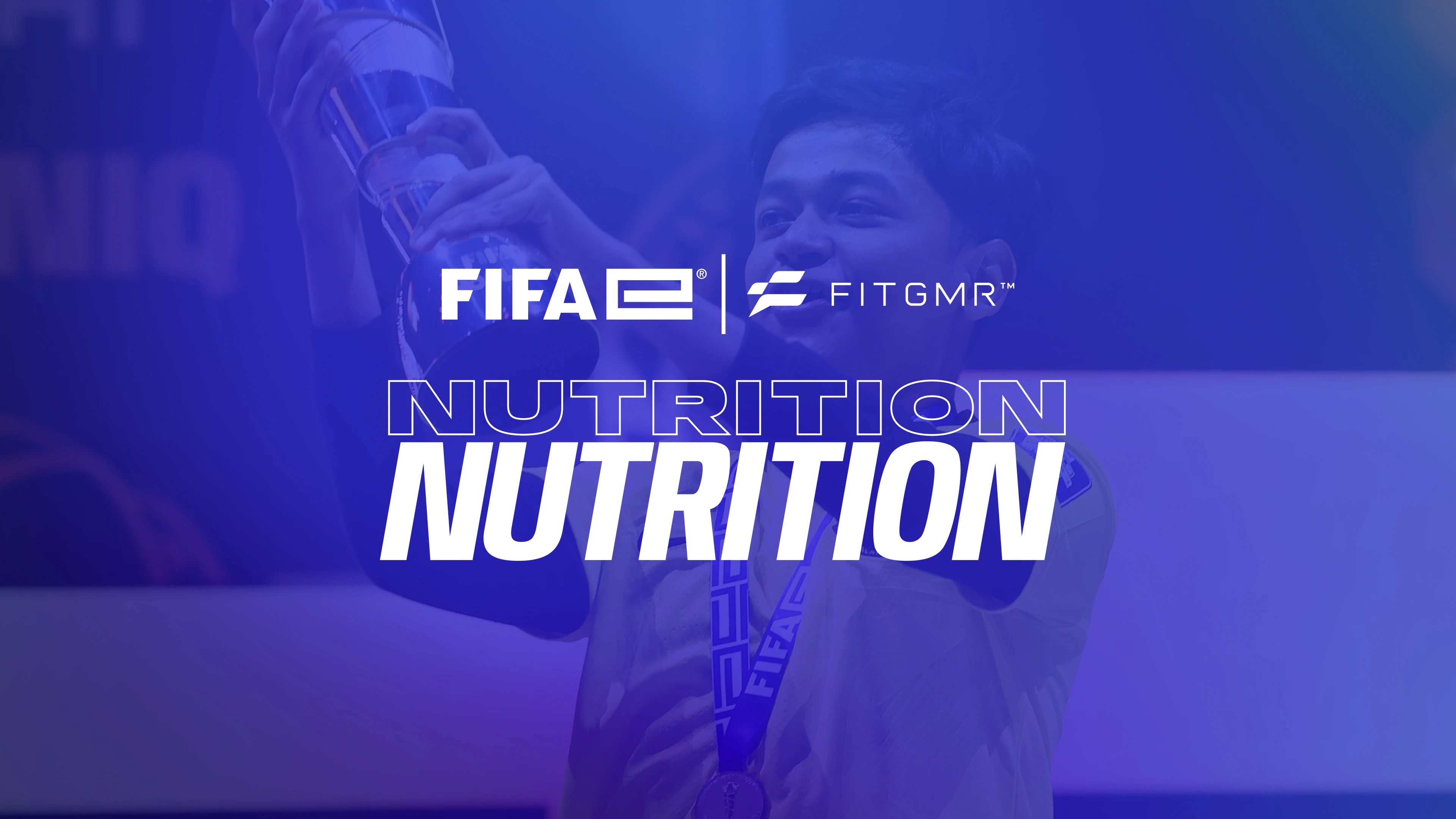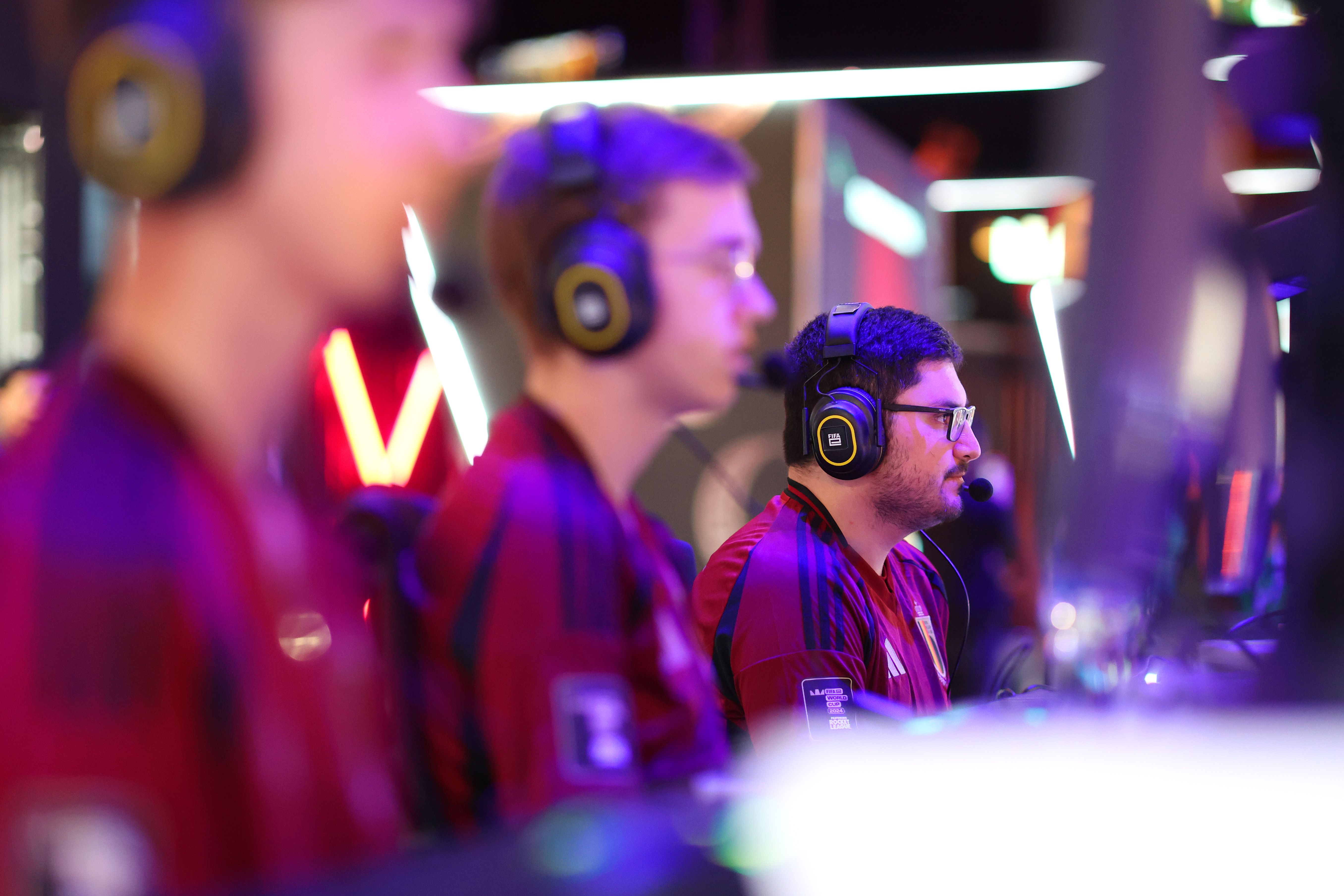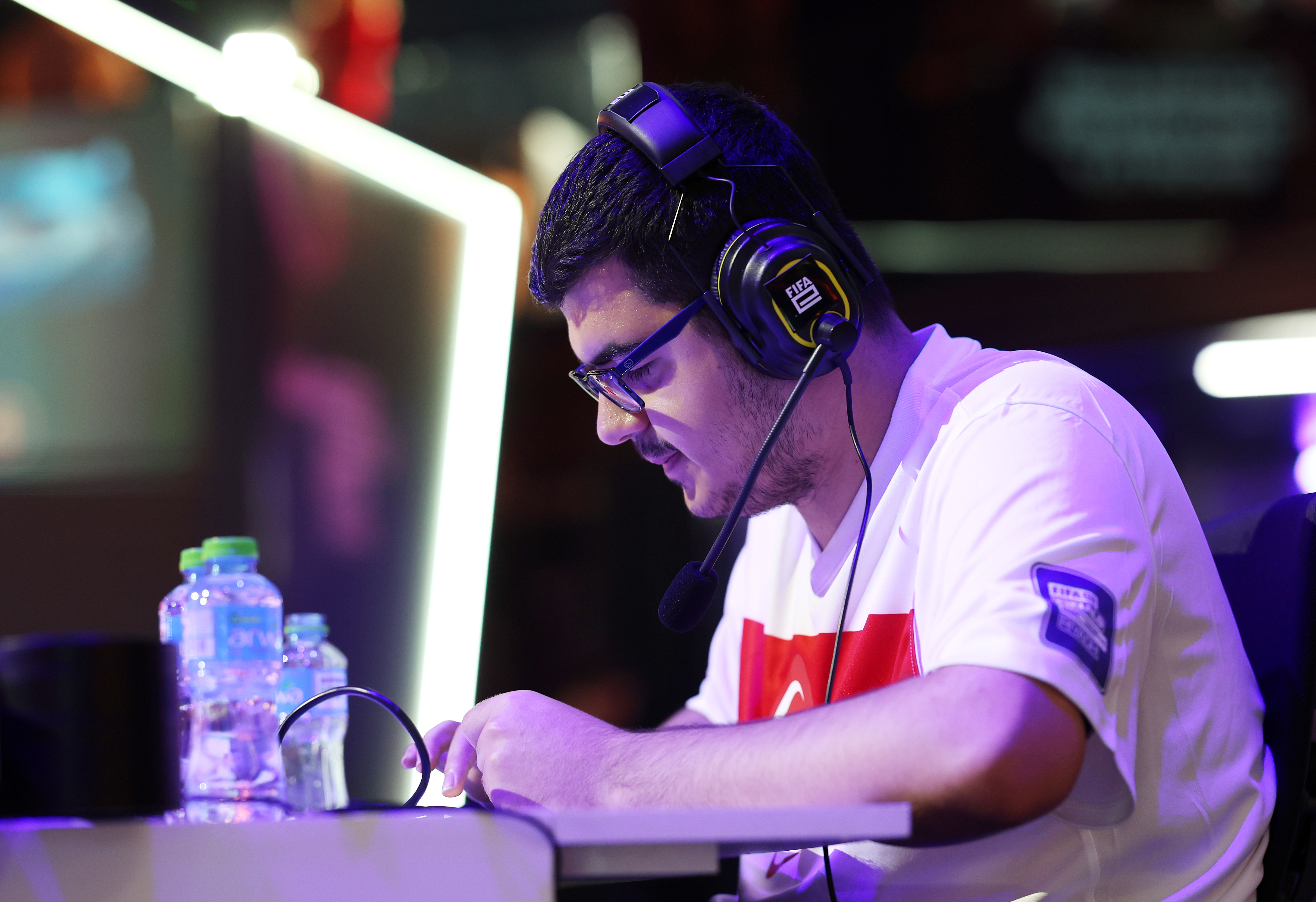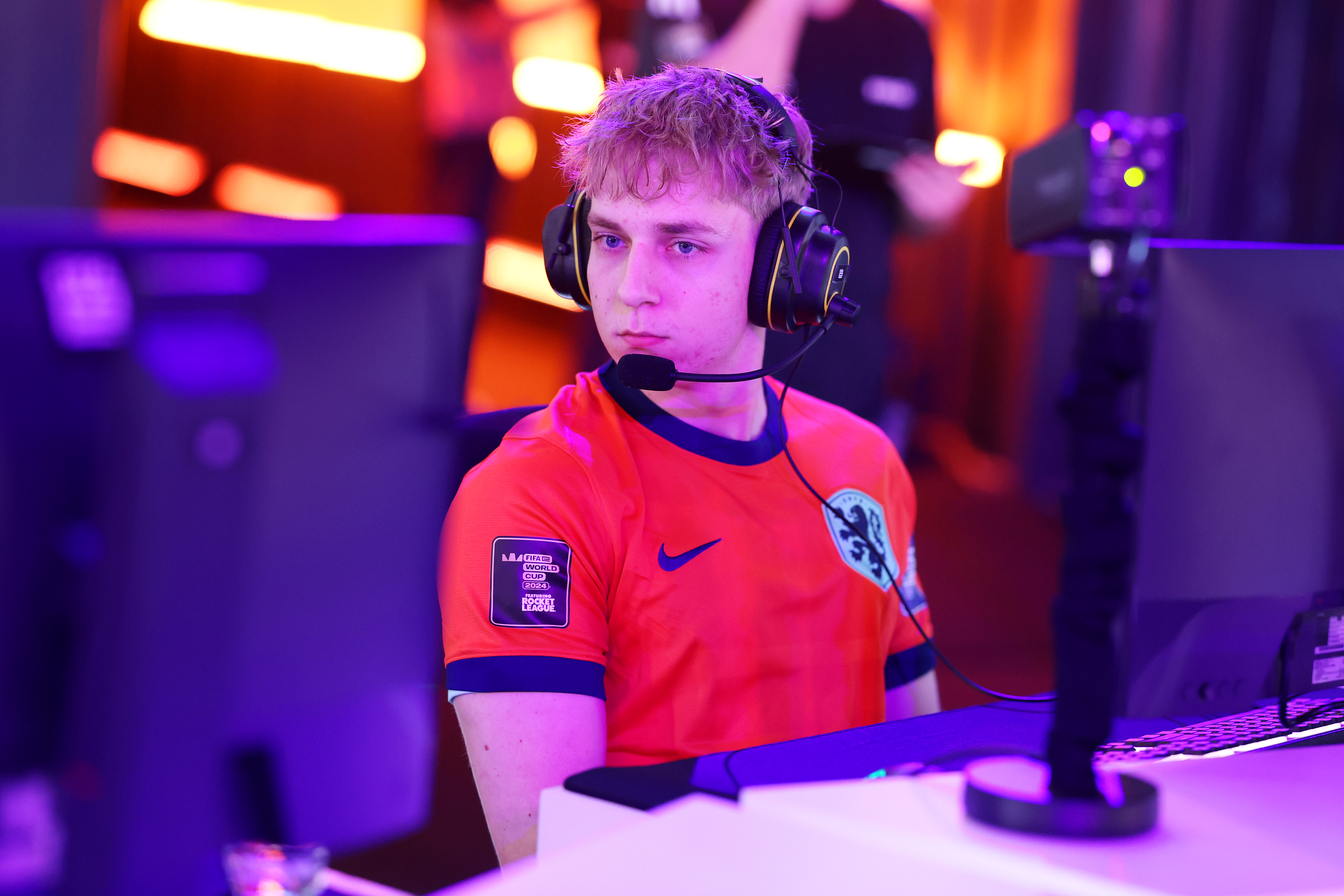
Your browser is not supported.
We are sorry, but the version of your browser is not able to display the content of fifa.gg. Please download the latest version or visit fifa.com.
Visit fifa.com01.09.2025
FIFAe recognizes that elite performance—whether on a physical pitch or behind a screen—is never just about raw skill. Both esports athletes and traditional footballers depend on a combination of controllable factors working in harmony.
Nutrition, often overlooked in gaming, plays a vital role in focus, stamina, reaction speed, and recovery for FIFAe players, just as it does for footballers on the field.
Much like professional football clubs invest heavily in nutritionists and tailored meal plans to optimize their athletes’ physical condition and endurance, FIFAe’s Good Game Promise promotes a holistic health mindset. This initiative encourages players to adopt sustainable and performance-oriented routines—not just to survive a single match, but to maintain peak performance over a whole season or career.
FIFAe is closing the gap with traditional football by emphasizing that esports athletes, too, require structured nutrition strategies for cognitive optimization and physical well-being. Expert-backed advice and partnerships with health-focused platforms like FITGMR help gamers build habits that support long-term health, echoing the sports science efforts seen in football training camps worldwide.
Whether training on the pitch or practicing in the gaming chair, the right nutrition fuels success. It’s easy to grab an energy drink or snack when you’re deep into training—but those quick fixes often come with long-term downsides:
Sugar and caffeine can temporarily enhance performance but often result in crashes, cravings, and poor mental focus.
Sedentary lifestyles combined with high-sugar diets can lead to excess sugar build-up in the body and brain.
Heavily processed foods contribute to brain fog, fatigue, and low motivation.
FIFAe encourages fueling the brain and body with balanced meals to sustain steady, long-lasting performance.
Healthy meals are crucial for optimal performance in esports and gaming. They consist of fresh, unprocessed foods that are low in carbohydrates and rich in healthy fats [1]. These meals are free from added sugar and packaged ingredients, ensuring superior nutrition for optimizing competition, enhanced recovery, faster cognitive processing and sustaining play longer – without crashing [2], [3].
To align with FIFA’s health-first approach, here’s how to fuel your body and mind:
Protein Sources: Include dairy products, eggs, meats, poultry, and fish to provide essential amino acids for muscle repair and growth.
Abundant Vegetables: Incorporate carrots, celery, spinach, lettuce, peppers, and broccoli to supply vital vitamins, minerals, and fiber for overall well-being.
Healthy Fats: Include avocado, nuts, and olives to provide omega-3 fatty acids and promote physical, brain and nervous system health.
Efficient Brain Fuel: These nutrient-dense foods fuel the brain efficiently, enhancing cognitive performance.
Sustained Energy: By promoting balanced energy levels, healthy meals prevent energy crashes and sustain performance over extended periods.
Sugar intake and hydration impact players in both domains deeply. For footballers, high sugar diets can lead to chronic health issues, while dehydration directly hampers endurance and concentration. The same applies to FIFAe competitors, where reaction speed and mental clarity can determine the outcome of a match.
Natural sugars found in fruits (like apples, oranges, bananas, cherries, and melons) come with fiber and nutrients your body needs. Sugars added to foods and supplements are metabolically unhealthy and negatively impact physical and cognitive performance.
Anything ending in an -ose (e.g., fructose, sucralose) or syrups (high fructose corn syrup).
Refined sugar, often found in pastry items or packaged sweet snacks
Damages cellular structures.
Significantly increases the risk of chronic diseases like diabetes, obesity, and heart disease.
Provides short-term energy but does not sustain extended performance.
For high-level play, a stable source is key. Real food fuels your focus, sharpens your reactions, and keeps you in the game—no crashes, just consistent performance.
Water constitutes 60% of our bodies. Even mild dehydration can reduce your reaction speed, focus, and negatively affect mood [4]. In esports, that can cost you the game, and that’s why FIFAe promotes hydration habits similar to traditional athletes: prioritize water and unsweetened teas while limiting sugary or highly caffeinated drinks.
There is no one-size-fits-all recipe for water intake.
Drinking too much water can also have negative physiological effects.
The best approach is to listen to your body’s thirst cues and monitor your hydration over a few days to find what works best for you.
Water and teas are the best choices to hydrate your body effectively.
Avoid juices, sodas, and heavily caffeinated sugary "energy" drinks that can have detrimental effects on both your health and gaming performance.
This hydration guidance aligns with FIFAe’s health-first mindset and is reinforced in our Healthy Gaming Guide.
What you snack on between meals can make a huge difference. In traditional football, athletes often rely on quick, healthy snacks like nuts, fruits, and protein bars to maintain energy during training and matches without causing sugar crashes or digestive issues.
Prioritize full, healthy meals to reduce the need for snacking.
If snacking is needed, choose options like fruits, vegetables, nuts, olives, jerky, and protein bars.
When selecting protein bars or shakes, be mindful of added sugars.
A good rule of thumb is to choose foods with no more than 5g of added sugars.
Pack your own snacks to stay in control—don't rely on vending machines or impulse options (5).
Caffeine is a staple in many athletes’ routines, but moderation is key. Overuse can cause negative physiological effects, but smart caffeine consumption will enhance your gaming performance [3]
Caffeine can be beneficial when strategically timed for optimal performance.
Excessive caffeine intake can have detrimental effects on the nervous system and response times.
A general guideline for maximum daily caffeine intake is 200-240 mg.
A typical cup of coffee from Starbucks contains around 180 mg of caffeine.
A single soda or soft drink may contain approximately 215 mg of caffeine.
Energy drinks are a staple in the esports scene. But it’s important to use them strategically, not rely on them as your main fuel source. Too much caffeine can lead to jittery hands, poor sleep and slower recovery. Use it wisely—especially before matches or high-focus moments.
This balanced caffeine approach is part of FIFAe’s ongoing commitment to supporting player health and peak performance.
Your food is your fuel. What you eat doesn’t just affect your body—it affects how quickly you think, how long you can stay focused, and how you recover. Eat for the player you want to become. FIFAe encourages players to see nutrition as a core pillar of their competitive edge and long-term health.
Use simple tools like questionnaires and hand portion guides to help athletes discover what diet works best for them. Encourage hunger awareness and mindful eating – eating slowly and without distractions is just as important as what and how much they eat.
Educating your team about nutrition builds habits that improve energy, focus, and in-game decision-making. Set expectations around fueling like a pro—it’s a performance edge most teams overlook. This education is part of FIFAe’s broader health-first mission through the Good Game Promise.
Meal Planning Templates: Prepare balanced meals in advance to avoid impulse snacking and fuel long sessions effectively.
Hydration Trackers: Use FITGMR app or water bottles with markers to stay on track with your daily water intake.
Smart Snacking List: Keep a go-to list of FIFAe-approved snacks—think fruits, nuts, jerky, and low-sugar protein bars.
Sugar Awareness Cheat Sheet: Teach players how to identify hidden sugars (anything ending in -ose or labeled as syrup).
Explore more tips, routines, and expert-backed guidance in the FIFAe Healthy Gaming Guide powered by FITGMR – your ultimate resource for performance-ready health in competitive play.
Ready to level up your habits? Join FIFA.GG and start tracking today to see the difference for yourself.
[1]Burke, L. M. (2015). Nutrition strategies for the athlete. Grand Tour, 8, 2-4.
[2]Mitchell, L., Murray, B., & Spence, J. (2019). Gamer Fuel: A Survey of Energy Drink Consumption Among Esports Athletes, Fans, and Recreational Gamers in Western Canada. Journal of Caffeine and Adenosine Research, 9(1), 7-13.
[3]Pelly, F., & Kennedy, E. (2020). Diet, nutrition, and the esports athlete. Current Opinion in Clinical Nutrition and Metabolic Care, 23(6), 493-498.
[4]Armstrong, L. E., Johnson, E. C., Casa, D. J., Ganio, M. S., McDermott, B. P., Yamamoto, L. M., ... & Maresh, C. M. (2012). The American College of Sports Medicine and the Academy of Nutrition and Dietetics: hydration for athletes. Journal of the Academy of Nutrition and Dietetics, 112(5), 679-692.
[5]Ribeiro F, Viana V, Borges N, Teixeira V. The Emergence of eSports Nutrition - A Review. Central European Journal of Sport Sciences and Medicine. 2021 Jul 1;33:81–95.



